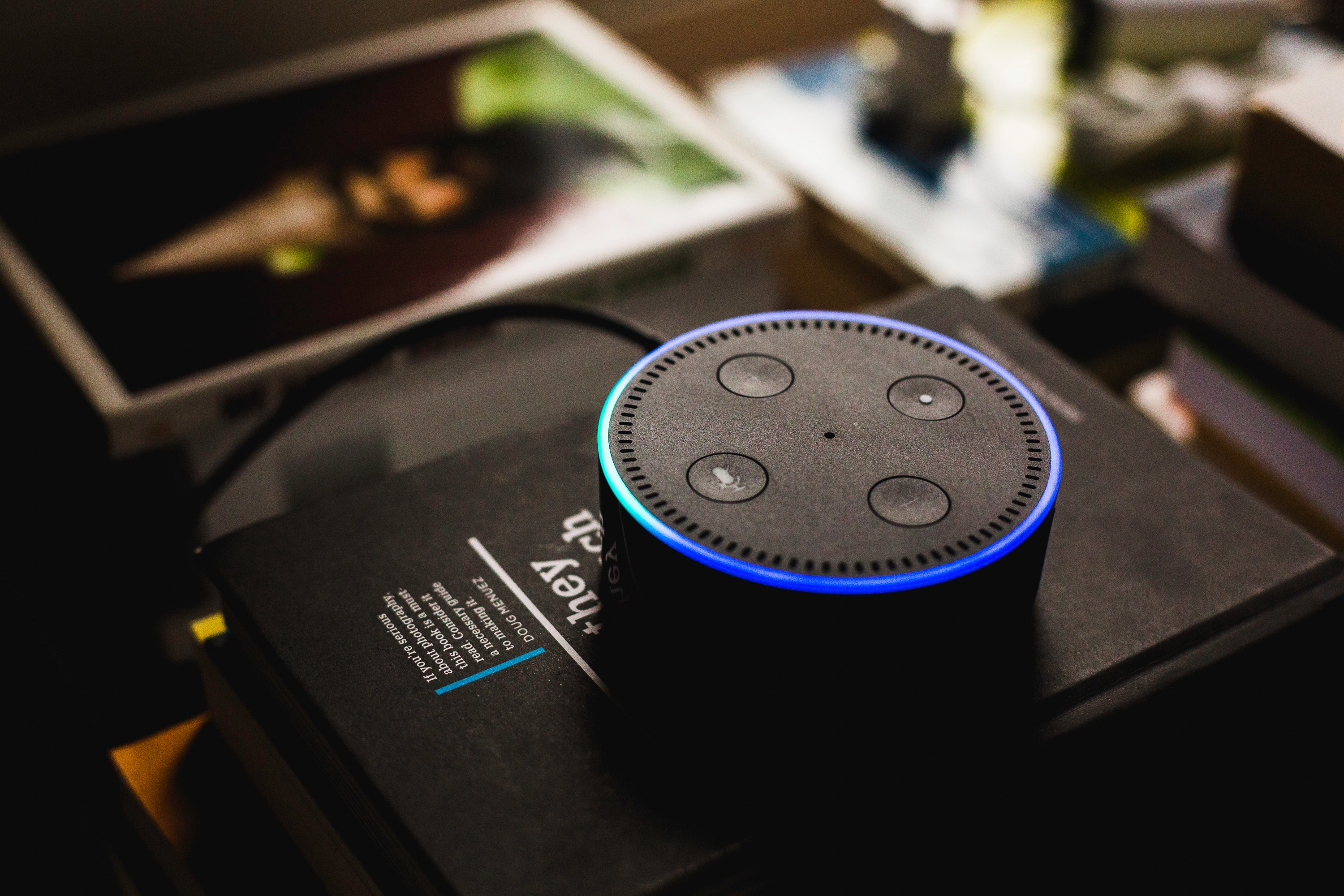December 7, 2018
by Tina Arnoldi
 Voice is how we communicate as humans and in recent years, has also become the way we interact with machines. People speak to devices now as part of their every day routine, whether buying online or completing a task. How will (or has) voice technology influenced the way we communicate with each other?
Voice is how we communicate as humans and in recent years, has also become the way we interact with machines. People speak to devices now as part of their every day routine, whether buying online or completing a task. How will (or has) voice technology influenced the way we communicate with each other?
Sophie Miles, with elMejorTrato.com, believes voice technology will influence the way people speak to each other, especially with children. But she thinks it can be a positive change. “More natural interfaces such as the voice [will] take control of technology and allow children to interact with the environment around them in a more complete way. In addition, being able to communicate by voice eliminates barriers of not knowing how to read and write.”
A developer in India, Sreeraman Thiagarajan, views voice technologies as a positive development, especially when it comes to reading and writing in English. Thiagarajan stated, “In India, there are over 400 million internet users, but only 10% of the population speak English. Voice can bridge the gaps since people can talk to voice assistants as opposed to typing in English, as is the case with a Google Search or Web URL.”
But there are still potentially negative implications with any new technology. At the recent Google Developer Expert summit, Adi Mazor Kario, with Wizard Product Design & UX, challenged attendees to consider whether people will talk to each other they way they speak to devices. “As tech leaders and entrepreneurs, we need to be aware of the effect we want to achieve in the world; what we want people to do and feel. Tech had a major effect on social and personal interactions in the last decade. The ability to talk to technology freely and naturally will have a big effect on our lives. Speech is most natural in a face to face interaction, while two people share the same location, atmosphere, and context while cooperating, sharing ideas and building emotional connections. Speech is a major part of our brain's ability to understand each other and empathize. As AI gains more human-like abilities in talking, understanding, remembering and reacting to emotions, people will use it more and they will not use it differently or refer to it differently than talking to human being.”
When asked if there could be a negative impact on our mental health or relationships with each other, Caleb Backe, with Maple Holistics, says ‘yes’. “The great thing about voice command is it does whatever you tell it to do, barring the occasional error. The drawback is that iteration makes a habit, and you could get in the habit of talking to people in a demanding way instead of politely. This is also a result of instant gratification, as we tend to forget they people don’t move as fast as machines.” And the downside of voice, adds Sreeraman, is that "it can only do so much without a visual aid". Voice only technology excludes facial expressions and visual cues.
Even with those limitations, Kario believes voice can help make society better and cites the following use cases: “For students with learning disabilities like dyslexia who could talk instead of write, for older people who need assistance, for building better educational programs based on natural interactions or enhancing medical treatment, as doctors could look at their patients eyes and dictate to a digital assistant instead of writing their medical files.”
Thiagarajan is excited about the possibilities with voice technology. He is currently working on aawaz.com to enable people in India to tell their stories and “live a better life through expert conversations in health, wellness, relationships, and career.” His goal with building voice first products on both Alexa and Assistant is to help people accomplish essential tasks. If voice helps people with the day-to-day, perhaps it can improve human interaction, providing more time to relate to each other. This is Kario’s vision: “I hope talking to devices will not be another way for people to consume more and avoid social interactions, worsening the attention consuming trend we currently see with screens. I believe tech is only a tool and we should utilize it mindfully and responsibly for a better future.”
Tina Arnoldi, MA is a marketing consultant and freelance writer in Charleston SC. Learn more about her and connect at TinaArnoldi.com